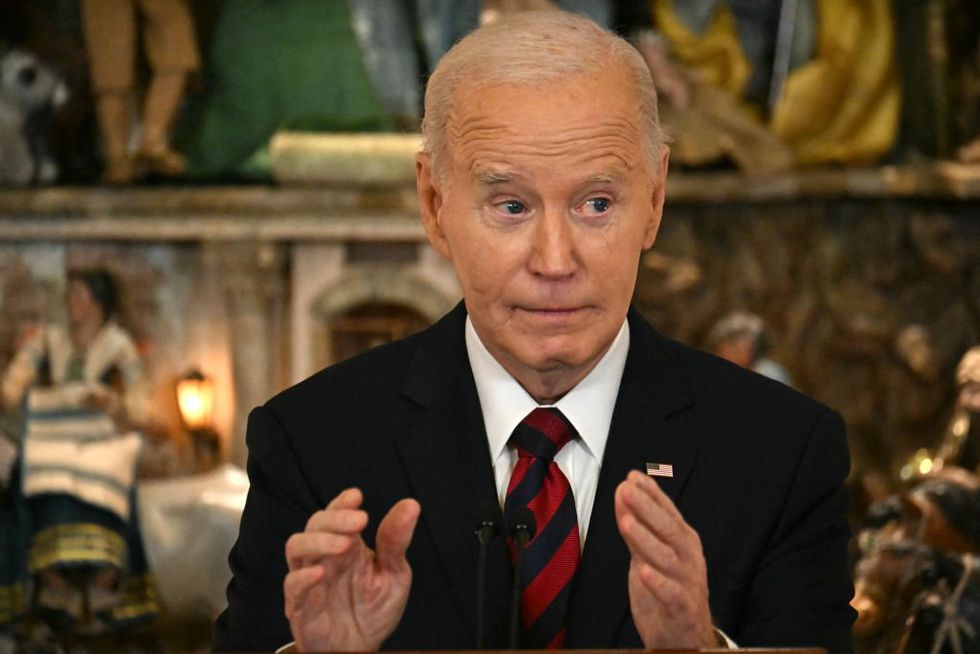Remembering Corrie ten Boom and the Jews
'The plight of Jews today ... would be greatly helped through a revival of Christian faith'


World War II ended almost 80 years ago, and yet, amazingly, Jews again are being persecuted in earnest in some parts of Europe.
CNN reports on last week’s clash in Holland after a sports event: that Israeli soccer fans were beaten and injured in violent clashes.
Now Israel is warning Jews in Europe even against attending cultural and sports events.
The Wall Street Journal adds this wrinkle to the story since Jews were chased down the street and beaten (for being Jews): “The Israeli government said it was sending planes to the Netherlands to evacuate its citizens.”
With the rise of radical Islam in Europe, among other anti-Jewish sentiments, some places are no longer safe for Jews.
The aspect of this story I find fascinating is that this took place in Holland, the home of Corrie ten Boom, the Christian hero who famously risked her life to save Jews from Nazis during World War II. She wasn’t alone.
I read once that some 50,000 Dutch people, mostly Christians, hid Jews during the Nazi occupation.
Like other resistant Dutch, the ten Booms had fake walls built in their homes to hide Jewish people and keep them from being rounded up by the Nazis.
After the war, Corrie wrote about her experiences in a book she penned with John and Elizabeth Sherrill, “The Hiding Place.”
The way the Gestapo was able to catch the ten Booms was through food rationing cards. How could this small family consisting of an elderly man and his two daughters be eating this much food? Of course, one of the horrors of Nazi occupation was that it strictly limited how much food one could eat (unless you were a Nazi or collaborator).
Corrie describes in her book the fateful day the Gestapo showed up to confront her:
“Where are the Jews?”
“There aren’t any Jews here.”
The man struck me hard across the face. “Where do you hide the ration cards?”
“I don’t know what you’re –”
She then describes how he hit her repeatedly.
“Where are the Jews?” Another blow. “Where is your secret room?” I tasted blood in my mouth. My head spun, my ears rang – I was losing consciousness. “Lord Jesus,” I cried, “protect me!”
Kapteyn’s hand stopped in midair, “If you say that name again, I’ll kill you!”
She and Betsie and Casper were arrested, then transported to one prison (where her father died) and later to Ravensbrück, a concentration camp for women. Eventually, they were able to get a hold of a hidden Bible in that camp. That book became a lifeline to them as they ministered to fellow prisoners.
Corrie writes: “In the feeble light I turned the pages. Here it is: ‘Comfort the frightened, help the weak, be patient with everyone. See that none of you repays evil for evil, but always seek to do good to one another and to all.’ It seemed written expressly to Ravensbrück.”
The concentration camp was so appalling that 95,000 women died in that place alone.
When you visit Israel, it’s required that tourists go through the museum dealing with the persecution of Jews through the centuries. On the grounds of that museum, there are trees that have been planted in honor of gentiles who risked much to help the Jews. One of those trees is dedicated to the memory of Corrie ten Boom.
Rabbi Daniel Lapin, an orthodox Jewish rabbi, is a man I have been privileged to interview on several occasions. He’s the founder of the American Alliance of Jews and Christians. He recognizes that in any region, the stronger the Christian faith is, the better it is for Jews. And the converse is true as well – weaker Christian faith spells danger for Jews.
In reference to the Jews and our country, Lapin told me, “I think always of America’s Bible Belt as Judaism’s safety belt. And the reality here is that in countries that have stripped away Christian foundations, what’s left is not nothing, but the intrusion of values that are hostile to all forms of faith.”
Many years ago, Rabbi Lapin mentioned Corrie and her family in one of our interviews: “Here is a woman whose father died saving Jews in Holland, and who saved Jews in Holland because, precisely, because of [their] Christian faith. And the book is an incredible testimony to a love between Jews and Christians, an extraordinary depiction.”
The plight of Jews today in many parts of the world, including the post-Christian West, would be greatly helped through a revival of Christian faith.
One of my favorite quotes is from Corrie ten Boom, which is a great reminder of the source of her courage. She liked to say: “Look to others, be distressed. Look to self, be depressed. Look to Jesus and be blessed.”
What's Your Reaction?

































































































